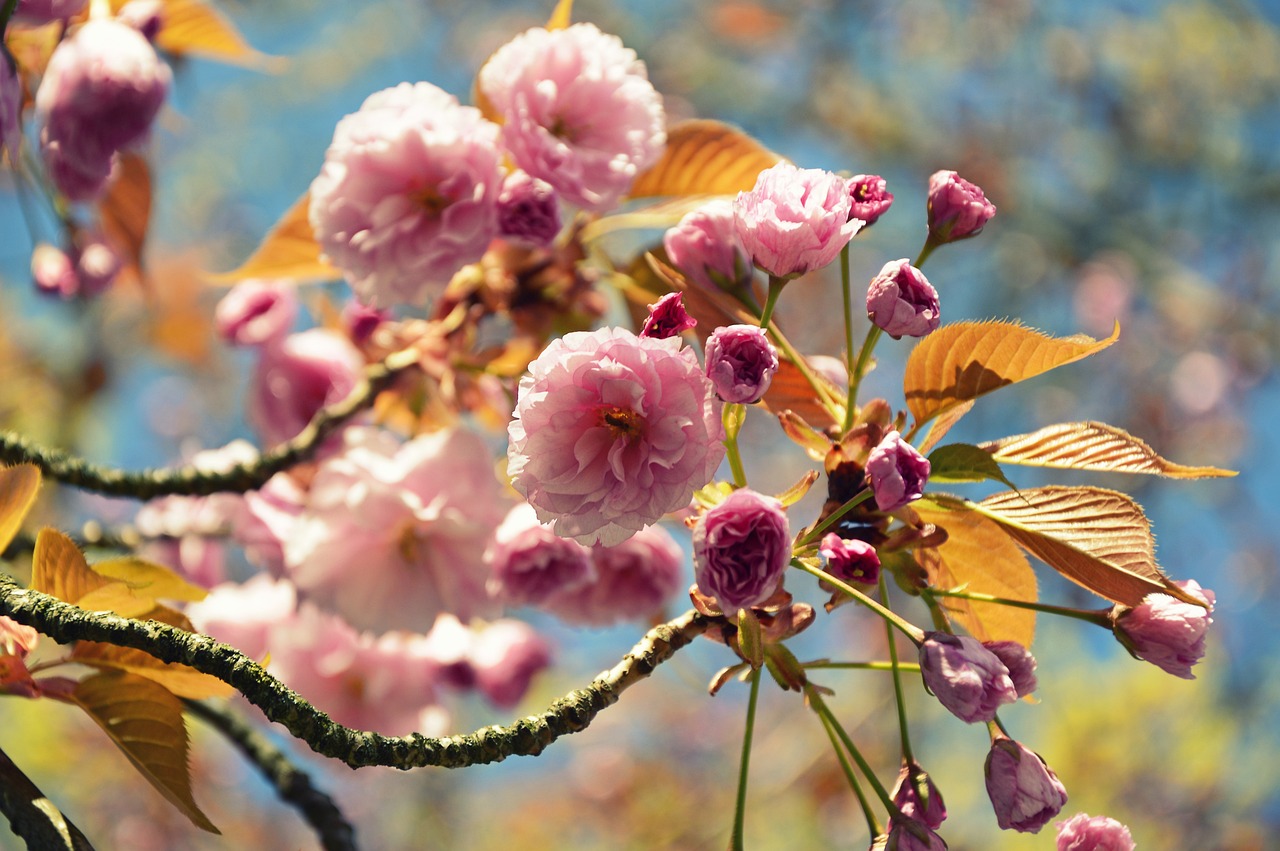The carnation is a flower that holds great significance and symbolism in various cultures around the world. It is a popular choice for its diverse meanings and associations, making it a versatile and meaningful flower for different occasions and contexts. In this article, we will delve into the deep-rooted meanings and symbolism of the carnation, exploring its historical significance, religious symbolism, cultural meanings, and the symbolism associated with different colors of carnations.
The carnation has long been associated with love and romance, symbolizing deep affection and admiration. Its beauty and fragrance have made it a popular choice for expressing feelings of love and affection towards someone special. In addition to its association with love, the carnation also holds historical significance, with roots in ancient Greek and Roman mythology. It has been used in various cultural traditions and ceremonies throughout history, representing different concepts and beliefs.
Furthermore, the carnation holds religious symbolism in different faiths and belief systems. In Christianity, it is often associated with the Virgin Mary and can be found in religious art and iconography. In Buddhism and Hinduism, the carnation is used in religious rituals and ceremonies as an offering to deities and ancestors. Its presence in these religious practices adds to its spiritual significance and meaning.
Moreover, the carnation holds cultural meanings in different parts of the world. It is often used in weddings and celebrations, symbolizing joy, happiness, and good luck. The carnation also finds its representation in literature and art, where it is used to convey various emotions and themes. Its versatility and beauty make it a popular choice for artists and writers alike.
Lastly, the symbolism of the carnation is closely tied to its colors. Different colors of carnations carry different meanings and associations. For example, red carnations symbolize deep love and affection, while pink carnations are often associated with gratitude and admiration. White carnations represent purity, innocence, and remembrance. The diverse range of colors allows individuals to choose the carnation that best represents their emotions and intentions.
In conclusion, the carnation is a flower that holds immense significance and symbolism in various cultures. Its meanings and associations are diverse, making it a popular choice for different occasions and contexts. Whether it is expressing love and romance, honoring religious beliefs, celebrating cultural traditions, or conveying specific emotions through color symbolism, the carnation continues to be a cherished flower with deep-rooted meanings.
Love and Romance
Love and romance have always been closely linked to the carnation flower. Throughout history and across cultures, the carnation has symbolized deep affection and admiration in various contexts and colors.
In the realm of love, the carnation holds a special place. Its vibrant colors and delicate petals have made it a popular choice for expressing romantic feelings. The different colors of carnations carry different meanings, allowing individuals to convey their emotions with precision.
For instance, red carnations are often associated with passionate love and deep affection. They are a classic choice for romantic gestures and declarations of love. Pink carnations, on the other hand, symbolize gratitude, admiration, and maternal love. They are commonly given on Mother’s Day and other occasions to show appreciation and affection.
White carnations represent purity, innocence, and remembrance. They are often used in weddings to symbolize the pure love between two individuals. Additionally, white carnations are frequently seen at funerals and memorial services as a way to honor and remember loved ones who have passed away.
Whether it’s the fiery passion of red carnations, the heartfelt gratitude of pink carnations, or the pure love represented by white carnations, the symbolism of the carnation in matters of love and romance is rich and diverse. Its beauty and significance have made it a cherished flower in the realm of emotions.
Historical Significance
The carnation flower holds a rich historical significance that spans across different cultures and time periods. In ancient Greek and Roman mythology, the carnation was believed to have been created from the tears of the Greek gods and goddesses. It was often associated with the goddess of love, Aphrodite, and was considered a symbol of beauty and love.
Throughout history, the carnation has played a significant role in various cultural traditions and ceremonies. In ancient Rome, it was commonly used in garlands and wreaths to celebrate special occasions and honor important individuals. The flower was also used in religious ceremonies and rituals, symbolizing purity and devotion.
In addition to its use in ancient civilizations, the carnation has continued to hold cultural significance in different parts of the world. In some cultures, the flower is associated with luck and good fortune, while in others, it is seen as a symbol of protection and healing. The carnation’s vibrant colors and delicate petals have made it a popular choice for decorative purposes and as gifts for special occasions.
Overall, the historical significance of the carnation is deeply rooted in its symbolism of love, beauty, and devotion. From ancient mythology to modern-day traditions, the carnation continues to captivate and inspire with its timeless allure.
Religious Symbolism
The carnation holds significant religious symbolism in various faiths and belief systems, including Christianity, Buddhism, and Hinduism. In Christianity, the carnation is often associated with the Virgin Mary, symbolizing her deep love and purity. It is believed that the carnation appeared on Earth when the Virgin Mary shed tears at the crucifixion of Jesus.
In Buddhism and Hinduism, the carnation is used in religious rituals and ceremonies as an offering to deities and ancestors. It represents devotion, purity, and the cycle of life and death. The vibrant colors of carnations are believed to attract positive energy and blessings in these spiritual practices.
Overall, the carnation’s religious symbolism reflects its universal significance and its ability to evoke deep emotions and spiritual connections in different cultures and belief systems.
Christianity
Christianity has a deep association with the carnation flower, especially in relation to the Virgin Mary. The carnation is often referred to as the “flower of the Virgin” and is believed to have originated from the tears of the Virgin Mary as she watched her son, Jesus, carry the cross. This connection to the Virgin Mary has made the carnation a significant symbol in Christian art and iconography.
In religious art, the carnation is often depicted alongside the Virgin Mary, representing her purity, love, and motherly devotion. The flower is also commonly used as a decorative element in religious ceremonies and events, such as weddings, baptisms, and funerals. Its presence serves as a reminder of the Virgin Mary’s role in Christianity and her unwavering love and compassion.
Buddhism and Hinduism
In Buddhism and Hinduism, the carnation holds great significance and is often used in religious rituals and ceremonies as an offering to deities and ancestors. The vibrant and fragrant carnation is believed to symbolize purity, devotion, and spiritual enlightenment in these faiths.
In Buddhism, the carnation is commonly offered as a symbol of respect and reverence to the Buddha and other enlightened beings. It is believed that the beauty and fragrance of the carnation can help purify the mind and create a harmonious atmosphere for meditation and prayer.
In Hinduism, the carnation is also considered sacred and is used in various religious ceremonies and rituals. It is often offered to deities during worship as a gesture of devotion and gratitude. The vibrant colors of the carnation are believed to attract positive energy and blessings from the gods.
Furthermore, the carnation is sometimes used in Hindu funeral rituals as a symbol of remembrance and to honor the departed souls. It is believed that the fragrance of the carnation can guide the souls of the deceased on their spiritual journey.
Overall, the carnation plays a significant role in Buddhism and Hinduism, serving as a symbol of purity, devotion, and spiritual connection. Its presence in religious rituals and ceremonies highlights the importance of flowers in these faiths and their ability to convey deep spiritual meanings.
Cultural Meanings
The carnation holds significant cultural meanings in various parts of the world. Its symbolism extends beyond love and romance, encompassing a wide range of contexts and celebrations. In weddings, carnations are often used to represent love and commitment, making them a popular choice for bouquets and floral arrangements. They symbolize purity and fidelity, adding a touch of elegance to the special day.
Furthermore, carnations are deeply rooted in literature and art. They have been featured in countless poems, stories, and paintings, representing different emotions and themes. Their vibrant colors and delicate petals evoke feelings of beauty, grace, and resilience. Artists and writers have used carnations to convey messages of love, friendship, and even sorrow.
In some cultures, carnations are associated with specific festivals and traditions. For example, in Japan, red carnations are often given on Mother’s Day as a symbol of gratitude and admiration for mothers. In Spain, carnations are used during the Feria de Abril festival, where women wear them in their hair as a symbol of celebration and joy.
- Weddings: Symbol of love and commitment
- Literature and art: Conveying beauty and emotions
- Cultural festivals: Representing celebration and gratitude
The carnation’s cultural meanings vary from region to region, but they all share a common thread of appreciation for its beauty and symbolism. Whether it’s adorning a bride’s bouquet or inspiring a poet’s verses, the carnation continues to captivate hearts and minds around the world.
Colors and Symbolism
The symbolism of different colors of carnations adds depth and meaning to these beautiful flowers. Each color represents a unique emotion or sentiment, allowing individuals to convey their feelings through the gift of carnations. Let’s explore the symbolism associated with some of the most popular colors of carnations:
- Red: Red carnations are often associated with love and deep affection. They symbolize passion, desire, and romance, making them a popular choice for expressing love on special occasions like Valentine’s Day or anniversaries.
- Pink: Pink carnations are commonly associated with gratitude, admiration, and maternal love. They represent appreciation and are often given as a symbol of thanks or as a gesture of affection towards mothers on Mother’s Day.
- White: White carnations symbolize purity, innocence, and remembrance. They are often used in weddings to represent the purity of love and are also commonly seen at funerals as a symbol of remembrance for loved ones who have passed away.
- Yellow: Yellow carnations represent joy, happiness, and friendship. They are often given as a symbol of friendship or to celebrate achievements and milestones.
- Purple: Purple carnations symbolize capriciousness and whimsy. They are associated with unpredictability and can be given to someone to convey a sense of mystery or fascination.
These are just a few examples of the symbolism associated with different colors of carnations. The color you choose can greatly enhance the message you want to convey, allowing you to express your emotions and sentiments in a meaningful and beautiful way.
Red Carnations
Red carnations hold a special symbolism that is deeply rooted in love and affection. These vibrant flowers are often chosen as a heartfelt gesture to express deep love and passion. The rich red color of the carnation petals symbolizes the intensity of emotions and the strong bond between two individuals.
Red carnations have become a popular choice for romantic gestures, such as giving them as a gift to a loved one or using them in floral arrangements for special occasions like anniversaries or Valentine’s Day. Their presence in bouquets or as a single stem can convey a message of love and devotion.
The symbolism of red carnations extends beyond romantic relationships. They can also be used to express admiration and respect for someone. Whether it’s a friend, family member, or mentor, red carnations can serve as a beautiful way to show appreciation for their presence in your life.
Pink Carnations
Pink carnations hold a special meaning and are often associated with gratitude, admiration, and maternal love. These delicate flowers are a common choice for special occasions such as Mother’s Day, where they symbolize the appreciation and love for mothers and mother figures.
When given as a gift, pink carnations convey a sense of gratitude and admiration towards the recipient. They are a perfect choice to express appreciation for someone’s kindness, support, or guidance. Pink carnations also represent maternal love, making them an ideal choice for celebrating and honoring mothers.
These beautiful flowers are often used in bouquets and floral arrangements for various events and celebrations, including birthdays, anniversaries, and baby showers. Their soft and gentle hue adds a touch of elegance and warmth to any occasion.
Whether you want to express gratitude, admiration, or celebrate the love of a mother, pink carnations are a meaningful and heartfelt choice.
White Carnations
White carnations hold a deep symbolism that is often associated with purity, innocence, and remembrance. These elegant flowers are commonly used in weddings, funerals, and other occasions where honoring loved ones who have passed away is important. The white color of carnations represents purity and innocence, making them a popular choice for bridal bouquets and decorations.
In addition to their association with weddings, white carnations are also commonly used in funeral arrangements. They symbolize remembrance and serve as a way to honor and pay tribute to the departed. The delicate beauty of white carnations offers a sense of peace and serenity during times of grief.
Furthermore, white carnations have been used throughout history as a symbol of pure love and devotion. They are often given as gifts to express deep affection and to convey a sense of loyalty and commitment. Whether used in joyful celebrations or somber occasions, white carnations carry a profound meaning that resonates with many.
Frequently Asked Questions
- What are the different meanings associated with the carnation flower?
The carnation flower holds diverse meanings and associations in various cultures. It is often associated with love, romance, deep affection, admiration, gratitude, purity, innocence, and remembrance.
- What is the historical significance of the carnation?
The carnation has a rich historical significance. It has been used in ancient Greek and Roman mythology and has played a role in various cultural traditions and ceremonies throughout history.
- What is the religious symbolism of the carnation?
The carnation holds religious symbolism in different faiths. In Christianity, it is associated with the Virgin Mary and is present in religious art and iconography. In Buddhism and Hinduism, it is often used as an offering in religious rituals and ceremonies.
- What are the cultural meanings attributed to the carnation?
The carnation carries cultural meanings in different parts of the world. It is symbolically significant in weddings, celebrations, literature, and art, representing love, beauty, and various emotions.
- What do different colors of carnations symbolize?
Each color of carnation has its own symbolism. Red carnations represent deep love and affection, pink carnations symbolize gratitude and maternal love, and white carnations signify purity, innocence, and remembrance.


